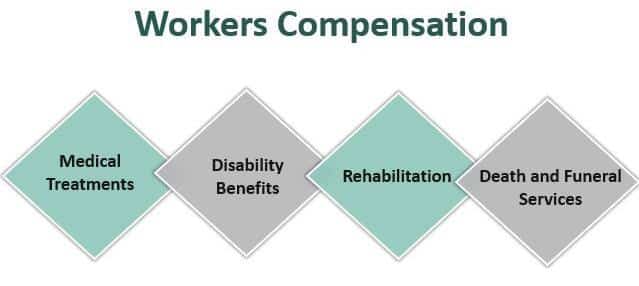Workplace Injury Claims: What Texas Employees Need to Know
Workplace injuries can happen to anyone, and it’s important to know your rights and options if you get hurt on the job in Texas. Understanding the process for filing a claim and knowing what benefits you’re entitled to can make a big difference in your recovery. This guide will walk you through the essentials of workplace injury claims in Texas.
Understanding Workers’ Compensation in Texas
Understanding workers’ compensation in Texas is essential for any employee who may face a work-related injury or illness. Workers’ compensation insurance is designed to provide financial and medical support to employees who are hurt or become ill due to their job. This system is in place to help workers recover without the added stress of lost wages or medical expenses. However, Texas has unique rules compared to other states.
Unlike many states, Texas does not mandate that all employers carry workers’ compensation insurance. This means that while some workers may be fully covered if their employer opts into the system, others may not have the same protections. If your employer does have workers’ compensation insurance, you are typically eligible for several key benefits. These include medical benefits, which cover the cost of necessary treatments, doctor visits, and rehabilitation services related to your injury or illness.
Additionally, workers’ compensation provides income benefits that replace a portion of your lost wages while you are unable to work. In some cases, you may also be entitled to other forms of support, such as vocational rehabilitation if you need to learn new skills to return to work, or death and burial benefits for your family if the injury is fatal. Understanding the scope and limitations of workers’ compensation in Texas is crucial, especially given the state’s flexible approach to employer participation in the system.
What Does Workers’ Compensation Cover?
Workers should never have to worry about paying for necessary medical care after an injury. Workers’ comp in Texas is designed to ease that burden.
Understanding what workers’ compensation covers is crucial for any employee injured on the job in Texas. This insurance is designed to provide financial and medical support to employees who suffer work-related injuries or illnesses. The benefits offered through workers’ compensation are comprehensive, ensuring that injured workers and their families are not left to bear the financial burden alone. Below, we outline the key areas that workers’ compensation typically covers in Texas.

Medical Expenses
One of the primary benefits of workers’ compensation is coverage for medical expenses related to your injury or illness. This includes the cost of doctor visits, hospital stays, surgeries, medications, and any necessary rehabilitation or therapy. The goal is to ensure that you receive the medical care needed to recover fully without worrying about the financial implications. Workers’ compensation also covers specialized treatments and long-term care if your injury requires ongoing medical attention.
Income Benefits
Workers’ compensation provides income benefits that partially replace lost wages if your injury or illness prevents you from working temporarily or permanently. These benefits are crucial in helping you manage your finances while you are unable to earn your regular income. The amount and duration of income benefits depend on the severity of your injury and how long you are unable to work. In some cases, you may receive temporary income benefits, while in others, permanent disability benefits may be available.
Death Benefits
In the tragic event that a worker dies due to a work-related injury or illness, workers’ compensation provides death benefits to the surviving family members. These benefits are designed to offer financial support to the deceased worker’s dependents, such as a spouse or children, helping them manage living expenses after the loss of their loved one. The death benefits typically include a portion of the worker’s average weekly wage and are paid out over time to assist the family during this difficult period.
Burial Expenses
Along with death benefits, workers’ compensation also covers burial expenses if a worker dies as a result of a job-related injury or illness. These expenses can include the costs of the funeral service, burial, or cremation. The coverage ensures that the family does not have to bear the financial burden of funeral costs, allowing them to focus on grieving and supporting one another during this challenging time.
Workers’ compensation in Texas provides a wide range of benefits to support employees who suffer work-related injuries or illnesses, as well as their families in the event of a tragedy. From covering essential medical expenses to providing income replacement and death benefits, this insurance is designed to help workers and their loved ones navigate the financial challenges that can arise from workplace injuries. Understanding what workers’ compensation covers ensures that you are aware of your entitlements and can seek the necessary benefits if the need arises.
Filing a Workplace Injury Claim
Filing a claim promptly is essential to ensure that you don’t lose out on the benefits you’re entitled to.
If you’re injured at work, it’s crucial to take the following steps to file a claim:

-
- Report the Injury Immediately: Notify your employer as soon as possible. In Texas, you have 30 days to report the injury, or you risk losing your benefits.
- Seek Medical Attention: Get medical treatment right away. Make sure the doctor knows your injury is work-related so it can be documented properly.
- File a Claim: Your employer should provide you with the necessary forms to file a workers’ compensation claim. Submit these forms to the Texas Department of Insurance, Division of Workers’ Compensation (DWC).
- Follow-up: Stay on top of your claim and ensure all paperwork is completed accurately and on time.
What If My Employer Doesn’t Have Workers’ Compensation?
Texas is unique in that it doesn’t require all employers to carry workers’ compensation insurance, which can leave some employees uncertain about their rights if they are injured on the job. If your employer is a “non-subscriber” and doesn’t provide workers’ compensation, you still have options to seek compensation, but the process differs from traditional workers’ compensation claims. Below are five key steps to consider if your employer does not have workers’ compensation insurance.
Determine Your Employer’s Status
The first step is to confirm whether your employer is a non-subscriber. This means they have opted out of providing workers’ compensation insurance, which is allowed under Texas law. Understanding your employer’s status is crucial because it determines your path forward for seeking compensation
Document the Injury Thoroughly
Without workers’ compensation insurance, you will need to build a strong case if you seek damages through a lawsuit. Start by documenting your injury as thoroughly as possible. This includes taking photos, getting witness statements, and keeping all medical records related to your injury.
Seek Medical Attention Immediately
It’s important to seek medical treatment right away, not only for your health but also to establish a clear link between your injury and your work. Even if your employer does not have workers’ compensation, your medical records will be vital evidence in any legal proceedings. Remember to let your healthcare physician know if your injury is related to your work.
Consider Filing a Personal Injury Lawsuit
Since you won’t have access to workers’ compensation benefits, you may need to file a personal injury lawsuit against your employer to recover damages. This lawsuit can cover lost wages, medical expenses, and compensation for pain and suffering. It’s important to understand that pursuing a lawsuit may require legal assistance and can be more complex than a standard workers’ compensation claim.
Consult with an Experienced Attorney
Navigating a workplace injury claim without workers’ compensation can be challenging, and seeking legal counsel is advisable. An experienced attorney can help you understand your rights, evaluate your case, and guide you through the process of filing a lawsuit. Legal representation can also help protect you from employer retaliation and ensure you receive the compensation you deserve.
While not having workers’ compensation insurance can complicate the process of seeking compensation for a workplace injury, it doesn’t mean you are without options. By taking the right steps, from documenting your injury to consulting with an attorney, you can still pursue the compensation you need to cover medical bills, lost wages, and other damages. Understanding your rights and the legal avenues available is key to navigating the complexities of workplace injuries in Texas.
Understanding Your Rights in Texas Workplace Injury Claims

The Right to Report Your Injury
The Right to Submit a Claim for Workers’ Compensation
If your employer carries workers’ compensation insurance, you have the right to file a claim to seek benefits for your injury. This includes coverage for medical expenses, a portion of lost wages, and other related costs. Filing a claim is your legal right, and your employer cannot deny you this opportunity or interfere with the process.
Protection Against Retaliation
Texas law explicitly prohibits employers from retaliating against employees who file workers’ compensation claims. This protection means your employer cannot fire, demote, harass, or otherwise punish you for exercising your right to seek compensation. If you experience any form of retaliation, you have the right to take legal action against your employer.
The Right to Appeal a Denied Claim
In the event that your workers’ compensation claim is rejected, you are entitled to file an appeal. The appeals process allows you to present additional evidence, clarify any misunderstandings, and argue your case before the Texas Department of Insurance, Division of Workers’ Compensation. An appeal can help ensure you receive the benefits you’re entitled to under the law.
The Right to Legal Representation
When to Seek Legal Help
While many workplace injury claims are straightforward, some situations may require legal assistance. You might consider consulting an attorney if:
-
- Your claim is denied.
- You face retaliation from your employer.
- Your injury is severe or leads to permanent disability.
- Your employer doesn’t have workers’ compensation insurance.
An experienced workplace injury attorney can help you navigate the process, protect your rights, and ensure you receive the compensation you deserve.
Knowing and understanding your rights as a Texas employee is essential when dealing with workplace injuries. These rights are designed to protect you and ensure that you are treated fairly throughout the workers’ compensation process. By being aware of your rights, you can confidently report injuries, file claims, and seek the benefits and protection you deserve without fear of retaliation.
Taking the Right Steps After a Workplace Injury in Texas
Let Roxell Richards Law Provide the Help You Deserve
If you’ve been injured at work in Texas, navigating the claims process can be challenging, especially if your employer doesn’t have workers’ compensation. At Roxell Richards Injury Law Firm, we’re here to help you understand your rights and get the compensation you deserve. Whether you’re facing a denied claim, employer retaliation, or a serious injury, our experienced team is ready to guide you every step of the way.
Don’t face this alone. Contact Roxell Richards Injury Law Firm today for a free consultation and allow us to be part of your successful journey towards justice that you deserve.
Roxell Richards Injury Law Firm

